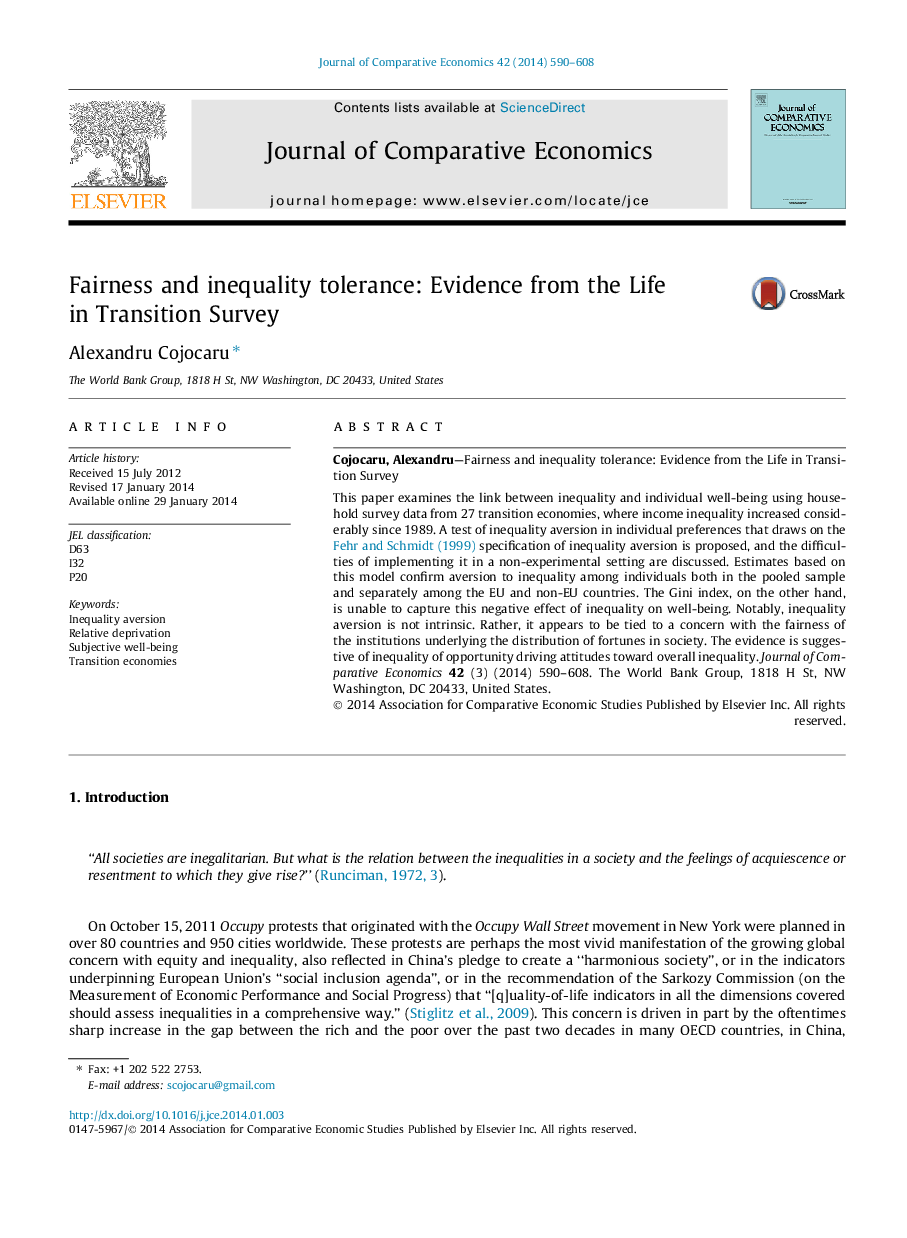| Article ID | Journal | Published Year | Pages | File Type |
|---|---|---|---|---|
| 5092340 | Journal of Comparative Economics | 2014 | 19 Pages |
â¢I examine tolerance for inequality in transition economies using observational data.â¢I argue that aggregate indices of inequality may not be ideal is such settings.â¢I build on a model from the experimental literature that allows for status concerns.â¢The model finds evidence of inequality aversion, not captured by the Gini index.â¢Aversion to inequality is tied to fairness concerns.
This paper examines the link between inequality and individual well-being using household survey data from 27 transition economies, where income inequality increased considerably since 1989. A test of inequality aversion in individual preferences that draws on the Fehr and Schmidt (1999) specification of inequality aversion is proposed, and the difficulties of implementing it in a non-experimental setting are discussed. Estimates based on this model confirm aversion to inequality among individuals both in the pooled sample and separately among the EU and non-EU countries. The Gini index, on the other hand, is unable to capture this negative effect of inequality on well-being. Notably, inequality aversion is not intrinsic. Rather, it appears to be tied to a concern with the fairness of the institutions underlying the distribution of fortunes in society. The evidence is suggestive of inequality of opportunity driving attitudes toward overall inequality.
